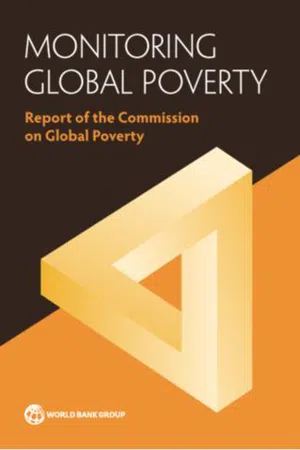
- English
- PDF
- Available on iOS & Android
About This Book
In 2013, the World Bank Group announced two goals that would guide its operations worldwide. The first is the eradication of chronic extreme poverty -- bringing the number of extremely poor people, defined as those living on less than 1.25 ppp-adjusted dollars a day, to less than 3% of the world population by 2030. The second is the boosting of shared prosperity, defined as promoting the growth of per capita real income of the poorest 40% of the population in each country. Last year, UN member nations agreed in New York to a set of post-2015 Sustainable Development Goals (SDG), the first and foremost of which is the eradication of extreme poverty everywhere, in all its forms. Both the language and the spirit of the SDG objective reflect the growing acceptance of the idea that poverty is a multi-dimensional concept that reflects multiple deprivations in various aspects of well-being. That said, there is much less agreement on the best ways in which those deprivations should be measured; and on whether or how information on them should be aggregated. This report advises the Bank on the measurement and monitoring of global poverty on two areas: • What should be the interpretation of the definition of extreme poverty, set in 2015 in Purchasing Power Parity (PPP)-adjusted dollars a day per person? • What choices should the World Bank make regarding complementary monetary and non-monetary poverty measures to be tracked and made available to policy-makers? The World Bank plays an important role in shaping the global debate on combatting poverty, and the indicators and data the Bank collates and makes available shape opinion and actual policies in client countries, and, to a certain extent, in all countries. How we answer the above questions can therefore have a major influence on the global economy.
Frequently asked questions
Information
Table of contents
- Blank Page